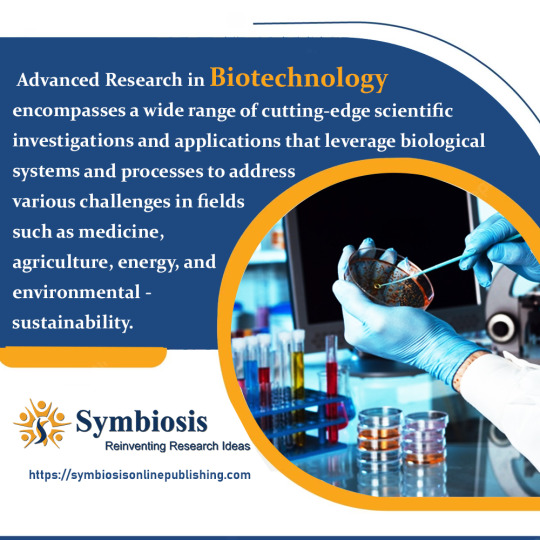#StemCellResearch
Text

Is cloning humans ethical?
According to a 2016 Gallup Poll, over 80% of respondents said cloning a human is “not morally acceptable.”
Do you agree? Interesting debate at @4bnewsworld
🧬 Link to read 🧬
#science #biology #cloning #stemcellresearch #physics #chemistry #technology #ethics #education #space #biologist #engineering #nature #research #facts #anatomy #astronomy #art #scientist #universe #knowledge #stem #medicine #love #health #sciencememes #math #covid #humancloning #sciencefacts #study #stemcell
#science#biology#cloning#stemcellresearch#stem cell research#biologist#anatomy#physics#technology#nature#research#facts#health#knowledge#stem#medicine#human cloning#science facts#astronomy
3 notes
·
View notes
Text
Primary Cells Market: Powering Innovation in Drug Discovery and Beyond
The primary cells market fuels progress in drug discovery, personalized medicine, and more. Explore market trends, top players, innovative cell culture techniques, and the rise of alternatives to primary cells
The Primary Cells Market: Powering Research and Drug Discovery
The primary cells market plays a vital role in advancing biomedical research and drug discovery. Primary cells are isolated directly from living organisms and offer a more realistic representation of human tissues compared to immortalized cell lines. This content explores the current landscape of the primary cells market and its…

View On WordPress
#BiomedicalResearch#CellBasedTherapy#CellCulture#CellIsolation#DrugDiscovery#FutureOfMedicine#PersonalizedMedicine#PrimaryCells#ScientificAdvancements#StemCellResearch
0 notes
Text

Ever wondered what factors play a key role in supporting the growth of stem cells? Let's dive into the fascinating world of stem cell biology and discover some of the crucial elements that contribute to their thriving growth:
Cytokines and Growth Factors: These signaling molecules act like molecular messengers, directing stem cells to proliferate and differentiate into specific cell types.
Microenvironment (Stem Cell Niche): The surrounding environment where stem cells reside plays a crucial role in their growth and maintenance. Factors such as oxygen levels, pH, and the presence of other cells can influence stem cell behavior.
Nutrient Availability: Just like any other cell, stem cells require a steady supply of nutrients to fuel their growth and metabolic activities. Adequate levels of vitamins, minerals, and other essential nutrients are vital for supporting stem cell proliferation.
Physical Forces and Mechanical Signals: Mechanical cues, such as substrate stiffness and mechanical stretching, can influence stem cell behavior and promote their growth and differentiation.
Epigenetic Regulation: Epigenetic modifications, such as DNA methylation and histone modifications play a critical role in controlling gene expression and regulating stem cell fate decisions.
Understanding these factors is key to unlocking the full potential of stem cells for regenerative medicine and therapeutic applications. Let's continue to unravel the mysteries of stem cell biology and harness their power for the benefit of human health! 💪🌟 #StemCellResearch #RegenerativeMedicine #ScienceIsAmazing
0 notes
Text
Ever marveled at the power of colostrum, the first nourishment for newborns? This natural wonder isn't just a source of essential nutrients but might hold the key to unlocking the potential of stem cells. Join us as we explore the fascinating connection between colostrum and the activation of these incredible cells!
#ColostrumPower#StemCellActivation#NaturalWonder#NewbornNutrition#EssentialNutrients#HealthDiscovery#StemCellResearch#ColostrumBenefits#CellularRegeneration#HealthBlog#StemCellTherapy#BiomedicalScience#NutritionalScience#ColostrumResearch#HealthAndWellness#colostrum
0 notes
Text
#stemcelltherapy#stemcell#sop#stemcells#stemcelltreatment#generationstemcell#antiaging#stemcelltechnology#purtier#diabetes#regenerativemedicine#stemcellresearch#stemcellinjection#stemcellgrowthfactor#skincare#plus#stroke#afclifescience#ultrawhitex#utsukushhii#stemcelltransplant#bioswissstemcell#celltherapy#health#purtierplacenta#glutax#indonesia#riway#steamcell#nexentury
0 notes
Text

𝐆𝐞𝐧𝐨𝐦𝐞 𝐄𝐝𝐢𝐭𝐢𝐧𝐠 𝐚𝐧𝐝 𝐂𝐑𝐈𝐒𝐏𝐑 𝐓𝐞𝐜𝐡𝐧𝐨𝐥𝐨𝐠𝐲: The development of the CRISPR-Cas9 system has revolutionized #geneticengineering and gene editing. Researchers are using this technology to modify genes in organisms
𝐒𝐲𝐧𝐭𝐡𝐞𝐭𝐢𝐜 𝐁𝐢𝐨𝐥𝐨𝐠𝐲: #syntheticbiology involves designing and constructing biological systems or organisms with novel functions or capabilities. This field has led to the creation of synthetic microbes for various applications
Visit @ https://symbiosisonlinepublishing.com/biotechnology/
#biotechnology#biology#environmentalbiotechnology#Bioreactors#immunobiotechnology#nanobiotechnology#AgriculturalBiotechnology#agricultural#MolecularGenetics#Therapeutics#stemcellresearch#journals#journal#pubmed#peerreview#OpenAccess#openaccessjournal#symbiosisonlinepublishing
0 notes
Text
The Power of Stem Cells| Q/A |DR. JAMAL A. KHAN

Unlock the potential of stem cells in a dynamic Q&A session featuring Dr. Jamal A. Khan. Stem cells are a remarkable source of healing and regeneration, holding promise for treating a wide range of medical conditions. Join us as Dr. Jamal A. Khan, a leading expert in the field, shares insights into the latest advancements, breakthroughs, and real-world applications of stem cell research. Discover how stem cells are revolutionizing healthcare and addressing various health challenges. From regenerative therapies to personalized medicine, this session will provide a platform to delve into the power of stem cells and their transformative impact on modern medicine. Don't miss this opportunity to engage with a pioneering authority and gain a deeper understanding of this cutting-edge field.
#StemCellPower#QandA#MedicalInnovation#RegenerativeTherapies#HealthcareAdvancements#ExpertInsights#StemCellResearch#HealthRevolution#PersonalizedMedicine#HealingPotential#DrJamalAKhan
0 notes
Text
From Conception to Creation: Exploring the Wonders of Clinical Embryology!
In the fascinating world of reproductive science, Clinical Embryology stands at the forefront of groundbreaking advancements and research. This field delves deep into the mysteries of conception and the early stages of life. If you have a passion for science and a desire to understand the miracles of human development, SEART's MSC in Clinical Embryology program is your gateway to this exciting realm. Let's embark on a journey to explore the wonders of Clinical Embryology and understand why SEART is the ideal destination for pursuing this extraordinary field.
What is Clinical Embryology?
Clinical Embryology is a specialized branch of reproductive science that focuses on the study of embryos, fertilization, and the early stages of human development. It plays a pivotal role in various reproductive technologies, such as in-vitro fertilization (IVF), pre-implantation genetic testing, and embryo cryopreservation. Embryologists are the skilled professionals responsible for handling, assessing, and nurturing embryos in assisted reproductive technologies.
The Importance of Clinical Embryology
Understanding Clinical Embryology is vital for several reasons:
Advancing Reproductive Technologies: The knowledge gained from Clinical Embryology research has revolutionized reproductive technologies, helping millions of couples fulfill their dream of parenthood.
Fertility Enhancement: Embryologists play a crucial role in identifying viable embryos, increasing the chances of a successful pregnancy.
Genetic Testing: Clinical Embryology enables the screening of genetic disorders in embryos before implantation, reducing the risk of passing on hereditary conditions to the offspring.
Stem Cell Research: The study of early embryonic development has contributed significantly to the understanding and advancements in stem cell research.
SEART's MSC in Clinical Embryology Program
SEART's MSC in Clinical Embryology program is designed to provide aspiring embryologists with a comprehensive and in-depth understanding of human embryology and its applications. Here are some key highlights of the program:
Expert Faculty: SEART boasts a team of highly experienced and knowledgeable faculty members who are leaders in the field of Clinical Embryology.
State-of-the-Art Facilities: Students get hands-on experience using cutting-edge equipment and technologies in SEART's advanced laboratories.
Practical Training: The program offers extensive practical training in embryo handling, cryopreservation, and genetic testing, preparing students for real-world challenges.
Research Opportunities: SEART encourages students to engage in research projects, contributing to the advancement of Clinical Embryology.
Career Opportunities in Clinical Embryology
A degree in Clinical Embryology opens doors to a range of exciting and rewarding career opportunities:
Clinical Embryologist: As a clinical embryologist, you will work closely with fertility specialists to perform procedures like IVF, embryo biopsy, and embryo transfer.
Embryo Biologist: Embryo biologists are involved in the assessment and selection of embryos for implantation, increasing the likelihood of a successful pregnancy.
Andrologist: Andrologists specialize in male reproductive health and are responsible for conducting semen analysis and preparing sperm samples for fertility treatments.
Research Scientist: A career in research allows you to contribute to the development of new reproductive technologies and medical advancements.
Why Choose SEART for Clinical Embryology?
Comprehensive Curriculum: SEART's MSC in Clinical Embryology program offers a comprehensive curriculum that covers the latest developments in the field.
Practical Approach: The program emphasizes practical training, giving students the confidence and skills needed to excel in their careers.
Industry Connections: SEART has strong ties with leading fertility clinics and research institutions, providing students with networking opportunities.
Alumni Success: SEART's alumni have established successful careers in Clinical Embryology worldwide, a testament to the quality of education offered.
Conclusion
Clinical Embryology is a captivating field that blends science with the miracles of life. With SEART's MSC in Clinical Embryology program, you can be at the forefront of reproductive science, making a difference in the lives of countless individuals and families. Embrace the wonders of Clinical Embryology with SEART and embark on a fulfilling and impactful career journey.
#ClinicalEmbryology#SEART#EmbryologyProgram#ReproductiveScience#MiraclesOfLife#IVF#FertilityEnhancement#GeneticTesting#StemCellResearch
1 note
·
View note
Text
The Basics of Clinical Embryology: What You Need to Know to Get Started
Clinical embryology is a fascinating field that plays a vital role in reproductive medicine. It involves the study of human embryos and the various processes that occur from fertilization to the formation of a healthy baby. If you're considering a career in embryology or are simply curious about the subject, this article will provide you with a comprehensive overview of the basics of clinical embryology.
What is Clinical Embryology?
Clinical embryology is a branch of reproductive medicine that focuses on the study of human embryos. It involves techniques and procedures used to aid in fertility treatments such as in vitro fertilization (IVF) and genetic testing. Clinical embryologists play a crucial role in assisting couples struggling with infertility to achieve their dream of having a child.
Embryologist Training
To become a clinical embryologist, extensive training is required. A strong foundation in the biological sciences, particularly in human anatomy, physiology, and genetics, is essential. Most embryologists hold advanced degrees in reproductive biology or embryology.
Embryologist training typically involves a combination of academic coursework, laboratory experience, and hands-on clinical training. Many universities and institutions offer specialized programs in reproductive medicine and embryology. These programs cover topics such as reproductive endocrinology, assisted reproductive technologies, and laboratory techniques for embryo culture, cryopreservation, and genetic screening.
SEART: Empowering Embryologist Training
SEART, a renowned brand in the field of reproductive medicine, has emerged as a leader in providing comprehensive training programs for aspiring embryologists. With a focus on practical skills and cutting-edge techniques, SEART offers a unique learning experience that prepares students for the challenges of the field.
The Importance of Clinical Embryology
Clinical embryology is crucial for the success of assisted reproductive technologies (ART) such as IVF. Embryologists are responsible for ensuring the quality and viability of embryos before transfer into the uterus. They play a significant role in the selection and culture of embryos, as well as the implementation of techniques like intracytoplasmic sperm injection (ICSI) and preimplantation genetic testing (PGT).
Embryologists work closely with reproductive endocrinologists, urologists, and other healthcare professionals to provide personalized care to patients. Their expertise in embryo assessment, cryopreservation, and genetic screening helps maximize the chances of a successful pregnancy while minimizing the risk of genetic disorders.
Key Techniques in Clinical Embryology
In Vitro Fertilization (IVF): IVF is a widely used technique in assisted reproduction. It involves the retrieval of eggs from the ovaries, fertilization with sperm in a laboratory, and subsequent culture of the resulting embryos before transfer into the uterus.
Intracytoplasmic Sperm Injection (ICSI): ICSI is used when male infertility issues are present. It involves the injection of a single sperm directly into the egg, increasing the chances of fertilization.
Embryo Culture: Embryo culture involves creating an optimal environment for embryo development in the laboratory. Embryologists monitor and nurture the embryos, ensuring they reach the appropriate developmental stages before transfer.
Cryopreservation: Cryopreservation allows the long-term storage of embryos, eggs, or sperm for future use. This technique is particularly beneficial for patients who produce excess embryos during IVF or wish to preserve their fertility for medical reasons.
Preimplantation Genetic Testing (PGT): PGT involves the genetic screening of embryos for inherited genetic disorders or chromosomal abnormalities. This technique helps identify healthy embryos for transfer, increasing the chances of a successful pregnancy and reducing the risk of genetic diseases.
Career Opportunities in Clinical Embryology
The field of clinical embryology offers exciting career opportunities for individuals passionate about reproductive medicine and genetics. Graduates of embryology programs can pursue various paths, including:
Clinical Embryologist: Working in fertility clinics, embryologists perform procedures such as IVF, ICSI, and embryo culture. They are responsible for assessing and selecting the best embryos for transfer.
Research Scientist: Embryologists can contribute to scientific advancements in reproductive biology by conducting research studies on embryo development, genetic manipulation, and stem cell research.
Laboratory Director: With experience and additional training, embryologists can become laboratory directors, overseeing the daily operations of reproductive medicine laboratories.
Educator: Experienced embryologists can choose to teach at universities, training the next generation of embryologists and researchers.
Conclusion
Clinical embryology is a captivating field that combines reproductive medicine, genetics, and laboratory techniques to help couples overcome infertility and achieve their dream of parenthood. Embryologist training, such as the programs offered by SEART, equips aspiring professionals with the knowledge and skills necessary to excel in this specialized field. With continuous advancements in reproductive technologies, the demand for skilled clinical embryologists is likely to grow, offering rewarding career opportunities and the chance to make a meaningful impact on people's lives.
#clinical embryology#embryologist training#SEART#reproductivemedicine#fertilitytreatment#IVF#genetictesting#embryoculture#cryopreservation#PGT#assistedreproduction#infertility#reproductivebiology#researchscientist#laboratorydirector#stemcellresearch#parenthood#careeropportunities#reproductivehealth
0 notes
Photo

Matt And Austin - 90 - Newsbreak 2 - 08-13-2001
💥 https://mattandaustin.com/webcomic-the-matt-and-austin-comic-strip-090-newsbreak-2/👈
#ThrowbackThursday#MattAndAustin#webcomic#jokes#comics#news#politics#USPolitics#PoliticalHumor#politicians#interns#GWBush#PresidentBush#StemsCells#StemCellResearch#AmericanPie#lol#follow
0 notes
Text

Did you know?
Exosomes are not stem cells, but they play a crucial role in the magic of #stemcell therapies. Discover the incredible potential of these tiny vesicles!
https://exosomes.advancells.com/
0 notes
Video
The Hidden Dangers of a Common Habit: Nose-Picking and Its Risks
In this video, we explore the little-known danger of nose-picking and how it could be linked to Alzheimer's disease. We share insights from a recent TikTok video by Professor St John, the head of the Clem Jones Centre for Neurobiology and Stem Cell Research at Griffith University in Queensland, Australia, and the research conducted by Griffith University scientists. Learn about the link between Chlamydia Pneumoniae bacteria, nose-picking, and Alzheimer's disease and discover other reasons why you should stop this common habit. Join us in exploring the latest research and insights on this topic.
0 notes
Text
The Benefits of Banking Your Baby’s Cord Blood: What Every Parent Should Know
#baby#cordblood#cordbloodbanking#stemcell#stemcells#stemcellresearch#cordbloodawareness#cordbloodbank#stemcellbanking#stemcelltransplant#stemcellther#aajkaakhbaar#aajkasamachar#realnewsofus
0 notes
Text
#immune#immunesystem#nursing#cells#Stemcells#stemcellresearch#pharmaceutical#biotech#platelets#t cells#naturalkillercells#Leezettelopatic#biotech and pharmaceuticals#leezette#pharmaceuticalrep#biotechtrends
1 note
·
View note
Text
Stem cell therapy has become a more common way to treat medical conditions. This is because stem cells have the ability to regenerate and replace damaged or destroyed cells. As a result, they can help improve various medical conditions. While there are some risks associated with stem cell therapy, it is generally considered safe and effective. If you are considering this treatment option, be sure to visit this website https://giostarchicago.com/stem-cell-therapy-clinic-in-chicago-il/ at the stem cell therapy clinic in Chicago.
0 notes
Text
#stemcelltherapy#stemcell#sop#stemcells#stemcelltreatment#generationstemcell#antiaging#stemcelltechnology#purtier#diabetes#regenerativemedicine#stemcellresearch#stemcellinjection#stemcellgrowthfactor#skincare#plus#stroke#afclifescience#ultrawhitex#utsukushhii#stemcelltransplant#bioswissstemcell#celltherapy#health#purtierplacenta#glutax#indonesia#riway#steamcell#nexentury
0 notes